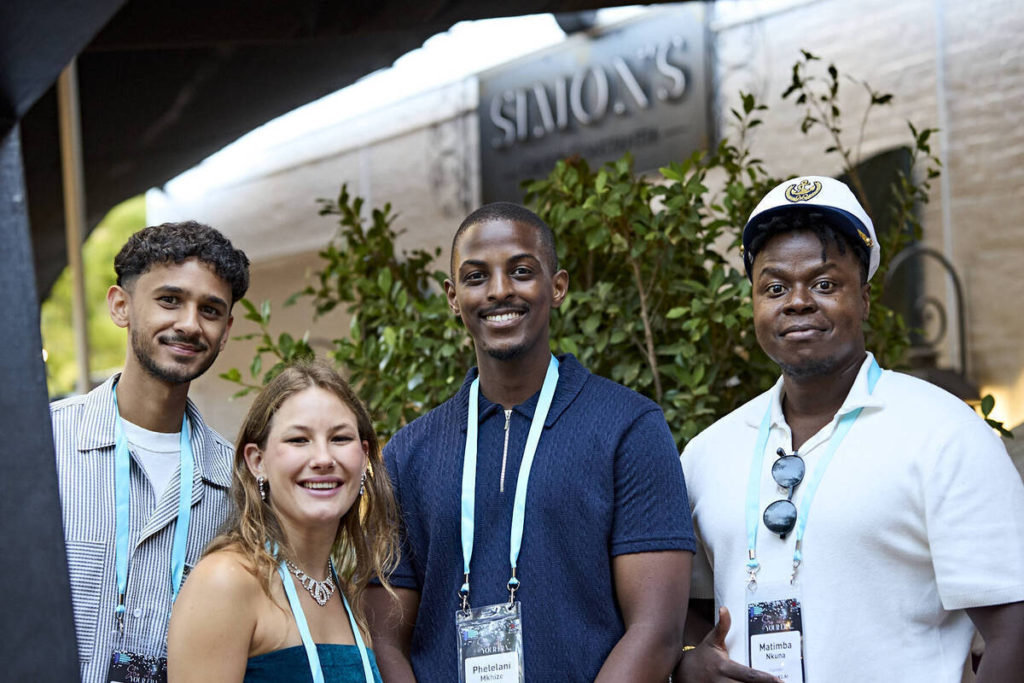By Nkosazana Ngwadla
Neuroinfections Researcher at the Division of Physiological Sciences, University of Cape Town, Rachael Dangarembizi’s primary research interest is in neuroimmune responses to fungal infections. As part of the Department of Human Biology and the Neuroscience Institute, her work focuses on investigating the inflammatory response to Cryptococcus neoformans infection specifically within the brain.
In addition to her scientific pursuits, Rachael actively promotes diversity and capacity building in African neuroscience, passionately believing in the potential and the advancement of African women in the field of science.
Rachael is also the lead investigator at the CryptoLab, Chair of the Southern African Neuroscience Society (SONA), and African Research Excellence Fund (AREF) Fellow. As the African ambassador for the ALBA network, she fervently drives the enhancement of neuroscience education across Africa.
She further imparts her knowledge by teaching neuroscience at various universities in Sub-Saharan Africa and serves as a mentor to postgraduate students within her lab at the University of Cape Town.
Underlying mechanisms of destructive nervous systems
Immersed in the realm of neurocryptococcosis, Rachael delves into the intricacies of neuroinflammatory mechanisms that underlie the devastating neurological damage.
To illuminate this complex phenomenon, and to add depth to her exploration, she harnesses the power of organotypic brain slice cultures harvested from clinical biospecimens, allowing for a more accurate representation of the intricate interplay within the brain.
Within the esteemed CMM AFRICA Medical Mycology Research Unit at UCT, Rachael has found her intellectual home. Her studies extend beyond the realm of neuroinflammation, encompassing the captivating biology of fungal pathogens. She unravels the mysteries of how these pathogens adapt and evolve upon encountering their host, peering into the inner workings of this captivating dance between microbe and human.
Rachael’s unwavering pursuit of comprehending the delicate dynamics of host-pathogen interactions assumes a vital role. With every discovery and insight gained, she paves the way for the development of innovative treatment approaches, poised to combat the challenging realm of fungal neuroinfections. Through their meticulous work, they contribute to a brighter future, where enhanced therapies and interventions promise hope for those affected by these formidable ailments.
Power structures firmly entrenched in an exclusionary world
It is remarkable how contemporary society continues to classify human potential based on power structures deeply ingrained in discrimination and exclusion.
Discrimination, regardless of its nature, imposes limitations even on individuals with immense potential. However, those who find themselves at the intersection of multiple marginalised identities face even greater obstacles.
In her thought-provoking TEDx presentation entitled “Nothing wrong with my African brain,” Rachael candidly shares the challenges she encounters as a young, Black African woman navigating the vast landscape of global scientific pursuits.
She eloquently illustrates how brilliant minds are often subjected to discrimination and denied opportunities to flourish solely because they are encapsulated within a body that is perceived as Black, female, African, or immigrant – or, in her case, all of the above.
Her narrative emanates from a profound aspiration to shed light on the intricate relationship between the human brain and a society that defines humanity based on power structures deeply entrenched in a world founded upon exclusionary principles.
Ground-breaking accolades
Every year, the University of Cape Town proudly puts forward a group of twelve UCT academics and a university partnership as finalists across multiple categories, highlighting their remarkable contributions in the fields of science, engineering, and technology (SET), both nationally and globally. These nominations represent the university’s commitment to excellence and innovation in research and academia.
The highly regarded National Science and Technology Forum (NSTF) Awards, known as NSTF-South32 Awards, are held in collaboration with mining and metals company South32. These awards, widely recognized as the most esteemed in the realm of research in South Africa’s SET domain, celebrate the outstanding achievements of scientists who drive sustainable socio-economic growth in the nation and enhance the overall quality of life for all South Africans.
Rachael, among the esteemed individuals, has been included in this year’s distinguished list of twelve exceptional nominees. The selection process is highly competitive, with numerous nominations received by the NSTF each year, making it a remarkable achievement to be named as a finalist for South Africa’s equivalent of the “Science Oscars.”
Image and source: Standard Bank Top Women












